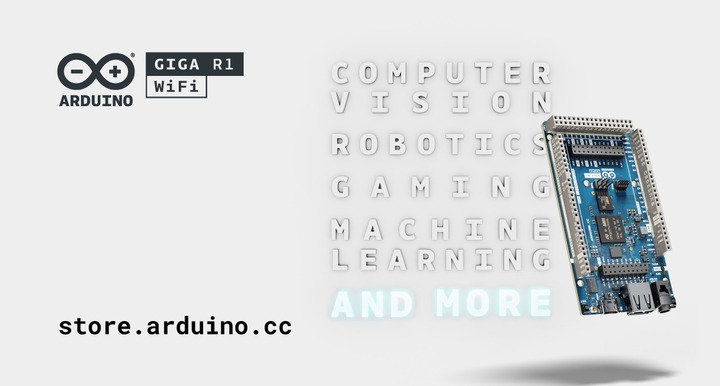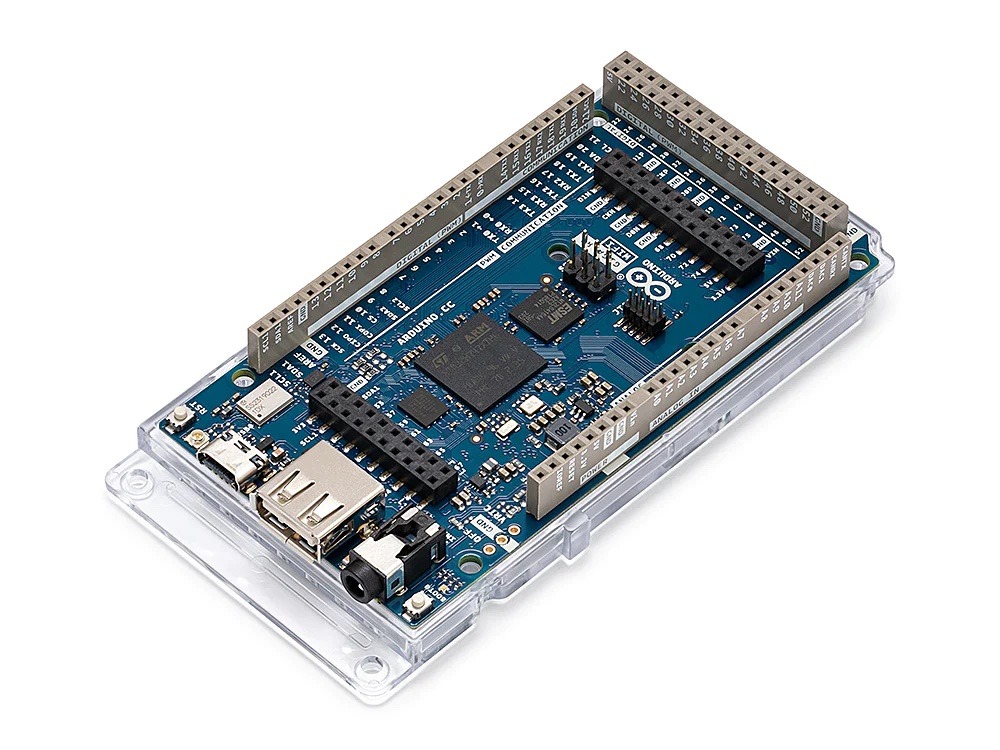Makers, get ready to step up your game with the GIGA R1 WiFi

A new board joins the Arduino family, and it’s the most powerful ever designed for makers, engineers and creators: today we’re announcing the GIGA R1 WiFi. Bridging you from great fun to amazing performance, it opens the door to infinite possibilities in robotics, IoT, music, computer vision, digital fabrication, and any kind of projects involving machines, interfaces, and real-time processing.
Excited yet? Because we sure are. We have developed a new product for ambitious makers, offering all the power of the STM32H7 microcontroller in the same form factor as the popular Mega and Due boards – and at an accessible price point. It’s the perfect tool for artists, gamers, sound designers, researchers and more, to step up their game, level the playing field, and add power to their play.
With GIGA R1 WiFi you can think bigger and be more creative than ever. It’s “two brains in one” thanks to the dual-core microcontroller (Cortex®-M7 core at 480 MHz and Cortex®-M4 at 240 MHz) which allows you to run two Arduino programs simultaneously – or, why not, an Arduino program and a MicroPython one. With this architecture, you can separate higher-level logic such as displays, interfaces, and networking from time-critical tasks such as motor control.

The board can be powered at 24V and takes the pins count to the stellar and rather unique number of 76 (of which 12 analog, 13 PWM, 4 serial ports, 3 I2C, 2 SPI, 1 FDCAN, 1 SAI). But get this: it all fits in the same footprint as the Mega, because the layout is optimized with extra pins in the middle, so you can boost existing projects or bring to life new ideas with more bang and no bulk.
And that’s not all. As the name suggests, your GIGA R1 WiFi provides Wi-Fi® and Bluetooth® Low Energy connectivity via a high-quality Murata 1DX module supporting external antenna. The board features an USB-C® connector for power, programming and HID device capability (i.e. simulate a mouse or keyboard when connected to a PC), but in addition it also carries a USB-A connector that provides USB host functionality which means you can plug a USB stick or another mass storage unit, as well as an external mouse or keyboard. An input-output 3.5-mm audio jack will enable lots of audio and music projects, while the camera and display pins will do the rest whenever you want to create interfaces, control panels or other creative interactions. This single-handedly makes building your own synth or visual installation not only possible, but easier. Which we love because we believe technology should enable everyone to think, make and innovate.
Last but not least, with the Arduino Cloud you can easily connect the board, create comprehensive dashboards, and control your project from your smartphone using the native app.
Ready to find out more? Check out all the tech specs on its Arduino Store page!